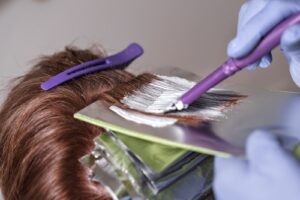Hair transplant surgery is a significant investment in your appearance and confidence. To ensure the best results and maintain the health of your newly transplanted hair, it’s important to follow a dedicated post-transplant hair care routine. Learn more from Eldorado.
Understanding the Importance of Post-Transplant Care
After a hair transplant, your scalp is in a sensitive state. Your new hair follicles need time to heal and establish themselves. Proper care during this period is vital to ensure successful graft survival, minimize complications, and promote healthy hair growth.
The First Few Days: Immediate Post-Transplant Care
Protect the Grafts
In the first few days after your transplant, the newly transplanted grafts are delicate and require special care.
- Avoid Touching: Refrain from touching, scratching, or rubbing your scalp to prevent dislodging the grafts.
- Head Elevation: Sleep with your head elevated to reduce swelling. Use extra pillows or a recliner to keep your head above your heart level.
- Wear a Loose Hat: If you need to go outside, wear a loose-fitting hat to protect your scalp from the sun and environmental elements.
- No Shampooing: Avoid washing your hair for the first 48 hours post-transplant to allow the grafts to settle properly.
- No Smoking or Alcohol: Refrain from smoking and consuming alcohol, as they can impair blood circulation and slow the healing process.
Gentle Washing
Proper washing is essential to keep your scalp clean without harming the grafts. Most surgeons recommend waiting 48 hours before washing your hair. Use a cup or bowl to rinse your scalp instead of standing directly under the showerhead to avoid dislodging grafts.
Avoid Physical Activity
Strenuous physical activity can increase blood flow to the scalp, leading to swelling and potential graft displacement. Avoid any form of exercise or heavy lifting for at least the first week. Also try to avoid the following:
- Saunas
- Hot tubs
- Heavy housework
- Cardio
- Sports
The First Few Weeks: Promoting Healthy Recovery
Moisturize Your Scalp
Keeping your scalp hydrated aids in the healing process and prevents dryness and itching. Your surgeon may recommend spraying a saline solution on your scalp to keep it moisturized. Steer clear of products containing alcohol or harsh chemicals that can irritate your scalp, such as:
- Alcohol-based hair sprays
- Harsh shampoos
- Astringents
- Strong hair gels
- Perfumed products
Monitor for Side Effects
Some side effects are common after a hair transplant, but it’s essential to monitor your scalp and overall health closely. Look out for the following:
- Swelling: Some swelling around the forehead and eyes is normal. Continue to elevate your head and apply cold compresses as needed.
- Itching: Mild itching is common as the scalp heals. Resist the urge to scratch, and consult your surgeon if it becomes severe.
- Redness and Scabbing: Expect some redness and scabbing in the transplanted area. These should resolve naturally within a couple of weeks.
- Infection Signs: Watch for signs of infection, such as increased redness, warmth, pus, or an unusual odor coming from the transplanted area. If you notice any of these symptoms, contact your surgeon immediately.
Follow-Up Appointments
Regular follow-up appointments with your hair transplant professional are crucial for monitoring progress and addressing any concerns. Attend all scheduled follow-up visits to ensure your healing is on track. If you have any unusual symptoms, such as excessive pain, bleeding, or infection, to your surgeon immediately.
The First Six Months
The first six months after your hair transplant are crucial for the healing process and the growth of your new hair. During this period, it’s essential to continue following a careful hair care routine to support the development of strong, healthy hair follicles. Here’s what you should focus on during these critical months:
Continue Gentle Hair Care
Stick to using mild, sulfate-free shampoos that are gentle on your scalp and new hair. Pat your hair dry gently with a soft towel rather than rubbing, which can weaken the newly growing hair. Avoid aggressive styling techniques such as tight ponytails, braids, or excessive use of hair accessories that might stress your new hair.
Gradual Return to Physical Activity
After the first month, you can gradually reintroduce light exercise, such as walking or yoga. However, avoid activities that cause excessive sweating or stress to your scalp. Continue to avoid high-impact sports or activities that could result in trauma to the scalp for at least the first six months.
Scalp Care and Moisturization
Continue moisturizing your scalp as recommended by your surgeon to prevent dryness and promote healing. After the first few months, you can begin to gently massage your scalp to stimulate blood circulation, which can aid in the growth of new hair. You can also do the following:
- Use Natural Oils: Consider applying natural oils like coconut oil or jojoba oil to keep your scalp moisturized. These oils can help reduce dryness and flakiness while promoting a healthy scalp environment.
- Avoid Hot Water: When washing your hair, use lukewarm water instead of hot water to prevent drying out your scalp and new hair.
- Apply Aloe Vera: Aloe vera can soothe irritation and hydrate your scalp. You can apply a small amount directly to your scalp if recommended by your surgeon.
- Hydrating Scalp Masks: Use hydrating scalp masks once a week to deeply moisturize and nourish your scalp.
Monitor Hair Shedding and Growth
It’s normal to experience some shedding of the transplanted hairs within the first few months. This is part of the natural cycle, and new hair will begin to grow in its place. Pay attention to the growth patterns of your new hair. If you notice any unusual patterns or lack of growth after six months, consult your surgeon.
Long-Term Care: Ensuring Lasting Results
Gentle Hair Care
Once your scalp has healed, you can begin to treat your hair more normally, but with extra care.
- Avoid Heat Styling: Minimize the use of heat styling tools, such as flat irons and curling irons, to prevent damage to your new hair.
- Use Gentle Products: Continue using gentle, sulfate-free shampoos and conditioners to maintain scalp health and hair strength.
- Be Careful When Brushing: Use a wide-tooth comb or a soft-bristle brush to detangle your hair gently.
- Regular Trims: Schedule regular trims to remove split ends and keep your hair looking healthy, which also promotes even growth.
- Protect from Environmental Stressors: Wear a hat or scarf to protect your hair from environmental stressors like pollution, wind, and sun, which can weaken your new hair.
- Use Silk or Satin Pillowcases: Sleep on silk or satin pillowcases to reduce friction on your hair while you sleep, which helps prevent breakage and tangling.
Sun Protection
Protecting your scalp from the sun is essential, especially in the months following your transplant. Continue wearing hats when outdoors to shield your scalp from direct sunlight. Once your surgeon gives the go-ahead, apply a high-SPF sunscreen to your scalp when going out in the sun.
Consider Medications and Supplements
Your hair transplant specialist may recommend medications or supplements to support hair growth and maintain the health of your new hair.
- Minoxidil: Some patients are advised to use minoxidil to promote hair growth and strengthen hair follicles.
- Finasteride: This medication can help prevent further hair loss in existing hair.
- Hair Supplements: Consider taking hair supplements that contain biotin, zinc, and other vitamins that support hair health.
Healthy Lifestyle Choices
Maintaining a healthy lifestyle can have a positive impact on your hair’s health and longevity. Eat a diet rich in vitamins and minerals that promote hair growth, such as leafy greens, nuts, and lean proteins. Drink plenty of water to keep your body and scalp hydrated.
High stress levels can affect hair growth. Practice stress-reducing techniques such as meditation, exercise, or yoga.
In Conclusion
Creating a post-transplant hair care routine is essential for ensuring the success of your hair transplant and maintaining the health of your new hair. By following these guidelines and working closely with your hair transplant service, you can achieve optimal results and enjoy a full, healthy head of hair. Remember that patience and consistency are key, as the full effects of your transplant will become more visible over time.
Contact Eldorado for Maryland Hair Transplant Services
If you have any concerns or questions about your post-transplant care or want to make an appointment for a hair transplant in Maryland, contact Eldorado. We offer comprehensive, expert hair transplant services near Baltimore. Schedule a free hair analysis now to get started.





